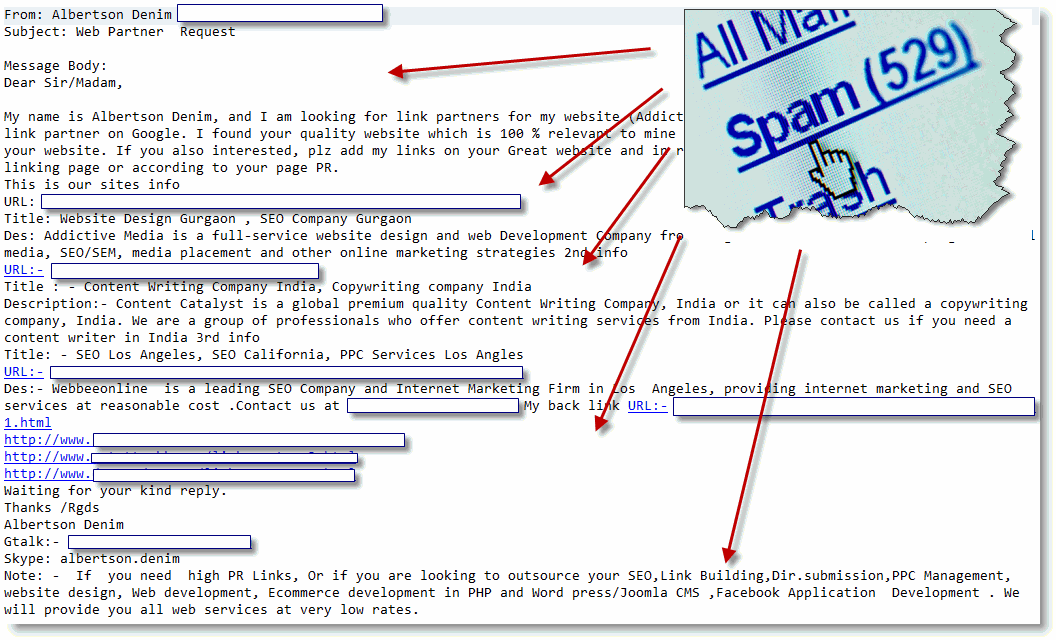 How many times have you received an email? A lot – we all do. Now, how about those ‘friendly’ emails that provide you a brief comment about how much they love your website? High frequency on that too, right? And, how often can you spot email spam over regular, ‘quality’ email? All the time. Not talking about email spam in general, but emails that come from seemingly nowhere asking you to give a link back to their site or page.
How many times have you received an email? A lot – we all do. Now, how about those ‘friendly’ emails that provide you a brief comment about how much they love your website? High frequency on that too, right? And, how often can you spot email spam over regular, ‘quality’ email? All the time. Not talking about email spam in general, but emails that come from seemingly nowhere asking you to give a link back to their site or page.
Folks who are not familiar with this spammy tactic will often not know what to do. It’s as if they owe the sending party something, and they freak out. We get ‘urgent’ messages from clients that somebody emailed them a request for a link exchange. They must do something, because they said: “your website is fantastic”. It’s all crap. Do not fall for it.
An example of such an email is shown in the picture below.

These types of email link spam come from a generic email account, often a gmail or yahoo account (or whatever). It’s never a legitimate corporate address. The websites are redacted in the picture. However, if you saw the web addresses, you could see that they are also “spammy” looking, and it provides no value. They are trying to build out web networks, to get links to their own websites and clients. They don’t care about you.
Now imagine if you went through with it. You respond, and add a link. Do you think Google is going to help you? You guessed right (NO!). When we followed the links and content, we saw (within 1 minute) that this was all bad neighborhoods. (We knew that from the email content, but tried it anyway).
Unfortunately, people fall prey to email link exchanges all the time. They may even buy into their services and other sales tactics. Often there will be an underlying reason for their ‘communication’ beyond just the link itself.
Takeaway (tip): A good email request would include YOUR personal name at first, properly addressed, reference a specific page (not just your website), how / why they found you, and ask how they can do something for you first. It will include their personal phone number, a well written (short, to the point) email. In other words when you ask “what’s in it for me” – you’ll already know, because they spent enough time to (hopefully) convince you of that.
Have you been taken lately?